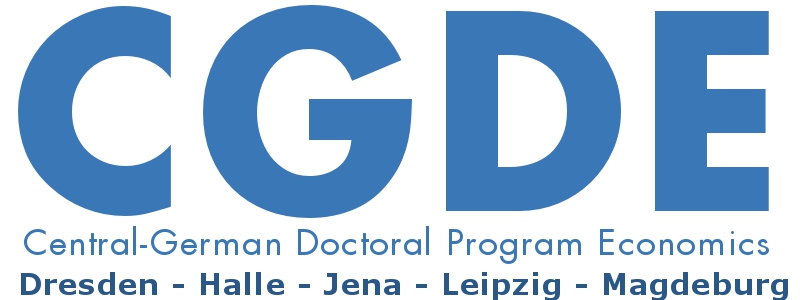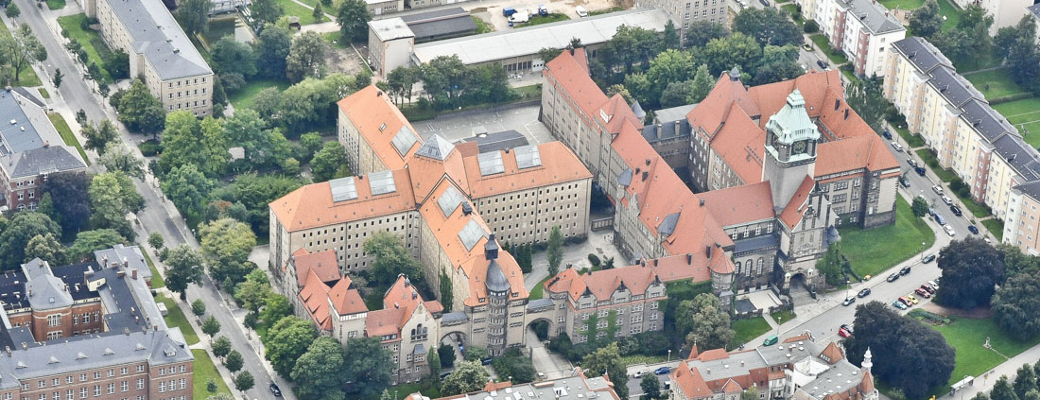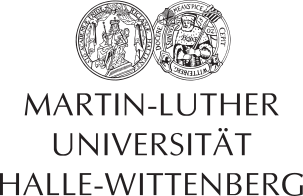Frontiers in Econometrics
Lecturer: Professor Dr Mario Larch (University of Bayreuth)
Date: September 27 – September 28, 2017
Venue: TU Dresden, Room SCH B247 (PC-Pool)
Registration: until July 31, 2017 via e-mail: yvonne.bludau@tu-dresden.de
Announcement see pdf
Objectives
This course provides a comprehensive treatment of mainly microeconometric methods which are used to analyse individual-level cross-section and panel data on the economic behaviour of individuals or firms. We will discuss various estimation methods (OLS, IV, MLE, GMM) and derive their (asymptotic) properties. All methods will be accompanied by practical implementations using examples from published papers.
The linear regression model will be discussed, but basic knowledge is assumed. The course will use matrix algebra. The course is oriented towards the applied economist.
Outline
1. The linear model: Identification, consistency, limit and asymptotic distribution.
2. Model misspecification: Functional form misspecification, endogeneity, omitted variables, pseudo-true values, parameter heterogeneity.
3. Instrumental variables: Inconsistency of OLS, IV estimator, Wald estimator, two-stage least squares, weak instruments, inconsistency of IV estimators, low
precision and finite-sample bias.
4. Maximum Likelihood: Classification, m-estimators, likelihood function, ML estimator, QMLE, marginal effects.
5. Generalized method of moments (GMM): Method of Moments, GMM, linear IV, non-linear IV.
Dates
September, 25 12:00 – 15:30
September, 26 09:00 – 15:30 (with 60 minutes lunch break)
September, 27 09:00 – 15:30 (with 60 minutes lunch break)
September, 28 08:00 – 13:30
Teaching Format
The course is based on lectures with computer exercises. All meetings will take place in the computer lab, so that we can switch form lectures to exercise whenever convenient. Students are requested to participate in discussions and to program their on estimators in Scilab (http://www.scilab.org/). Scilab is an open source software with a very similar syntax and capability as Matlab (http://www.mathworks.com/products/matlab/). The advantage of learning to implement an estimator on your own is that it enhances the student’s understanding of the basic ideas behind different estimators. It further opens up the possibility to implement not readily available and implemented estimators either with Scilab or also within any other commercial statistical packages such as STATA (http://www.stata.com/) by using their built-in matrix and programming capabilities.
Assessment
Participants can write a term paper replicating an econometric study from a published paper or write a term paper focussing on the empirical methods from their own research project.
Prerequisites
The participants are expected to have some knowledge in matrix algebra, probability theory, statistical inference and regression analysis.
Readings
[1] Cameron, A. Colin and Pravin K. Trivedi (2005), Microeconometrics – Methods and Applications, Cambridge University Press (accompanying homepage: http://cameron.econ.ucdavis.edu/mmabook/mma.html). Companion: Cameron, A. Colin and Pravin K. Trivedi (2010), Microeconometrics using STATA, STATACorp LP. Additionally, the examples in the lectures and exercise will be based on published papers, which will be referenced throughout the course.
Supplementary Readings
[1] Amemiya, T. (1985), Advanced Econometrics, Harvard University Press.
[2] Greene, W.H. (2011), Econometric Analysis, 7th ed., Prentice Hall.
[3] Wooldridge, J. (2010), Econometric Analysis of Cross Section and Panel Data, 2nd ed., MIT Press.























